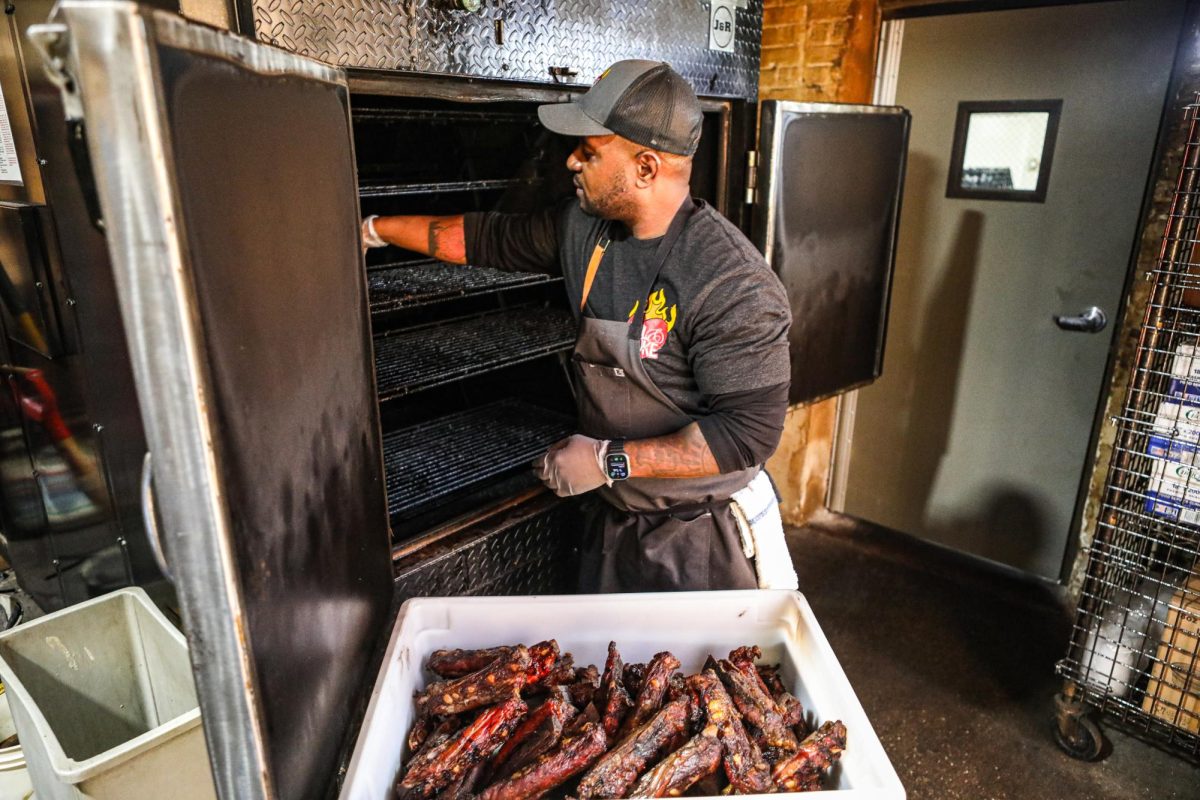Nearly every year, new classes are introduced for ETHS students to choose from. This year, for the first time, the school offered Zoology: Animals and Society, which nearly 80 ETHS students were sorted into for the 2024-2025 school year.
The idea for a zoology class first blossomed in early 2017 when current biology and zoology teacher Greg Ruber-Strohm was interviewed for a teaching position at ETHS; he already knew that this class was something he wanted to teach.
“It was always something I’d been thinking about,” Ruber-Strohm says. “I think that it was part of my interview.”
Ruber-Strohm had a background in zoology before switching gears and becoming a teacher. He worked as a biology teacher for seven years at ETHS before zoology was introduced and spent a lot of that time planning the future zoology class.
“This class has been in the making for a while,” Ruber-Strohm said. “Covid kind of threw a wrench in it, and the conversation really came back about two years ago.”
From the beginning, Ruber-Strohm has wanted the class to be about more than just the animals.
“The main goal is to look at this classroom through the lens of evolution and conservation,” he stated.
He considers appreciation for conservation almost as important as the content.
“There’s a lot of different ways to view zoology, but we went with the idea of making sure students leave the space with an appreciation for the diversity of life,” remarked Ruber-Strohm.
The class also aims to help students later in their educational careers.
“I wanted it to be not just about the information, but about building college readiness skills,” Ruber-Strohm said.
The zoology course at ETHS is dual credit; ETHS is running sections of the Oakton College zoology course here, a course which was also implemented by Ruber-Strohm.
“It got approved by the board this time last year, and I’ve been working with Oakton for the past year to make their version of the class,” Ruber-Strohm explained.
The Oakton class, entitled “Animals and Society” gives Oakton students four credit hours towards graduation, a perk that dual credit students will also enjoy. Ruber-Strohm shared the difficulties of making a class dual credit, saying, “There’s a lot of stuff that’s behind the scenes in terms of meeting with different people and talking to the high-level people at Oakton.”
The fact that this class is Dual Credit can make the classroom atmosphere feel different than Ruber-Strohm’s normal biology classes.
“I think there are a lot of students who are intimidated by dual credit,” he said.
He feels as though students in non-dual credit classes have more time to explore the subject since they have less content.
“There is a lot of responsibility on the student to do some learning on their own,” he said.
The zoology class will be starting off small this year then making their way to bigger animals throughout the year, starting with sponges and jellyfish and eventually reaching more tigers, humans, and snakes.
“We start small with things that would be considered more primitive and build on that,” said Ruber-Strohm.
High School zoology as a course is relatively new in the United States. As of 2009, The National Center of Education didn’t even measure the percentage of high school students taking zoology. As of 2010, only 896 people in the country were enrolled in graduate programs for zoology. The number had risen to 2,140 by 2022, which is still only ⅛ of the enrollment for other biological based sciences like biochemistry. As of 2023, 1,640 college degrees were handed out to zoology majors.
The ETHS zoology program has three sections, all of which are 95% seniors. Considering that the average first year class at ETHS has one section, the zoology class numbers aren’t typical. Ruber-Strohm credits these numbers to the fact that people just like animals, and want to learn more about them and that the dual credit portion of the class didn’t scare students off.
“It might be challenging, but at least it’s in a content access area that they enjoy.”
If the trend continues, the ETHS Zoology course will be growing next year, hopefully preparing students well for college life ahead of them and planting the ideas of evolution and conservation in their minds forever.




